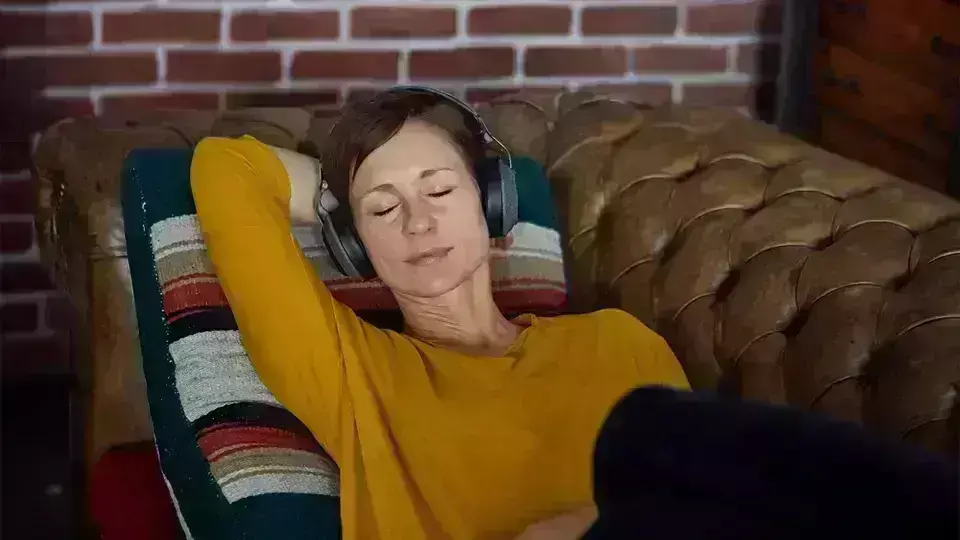- Home
- Medical news & Guidelines
- Anesthesiology
- Cardiology and CTVS
- Critical Care
- Dentistry
- Dermatology
- Diabetes and Endocrinology
- ENT
- Gastroenterology
- Medicine
- Nephrology
- Neurology
- Obstretics-Gynaecology
- Oncology
- Ophthalmology
- Orthopaedics
- Pediatrics-Neonatology
- Psychiatry
- Pulmonology
- Radiology
- Surgery
- Urology
- Laboratory Medicine
- Diet
- Nursing
- Paramedical
- Physiotherapy
- Health news
- Fact Check
- Bone Health Fact Check
- Brain Health Fact Check
- Cancer Related Fact Check
- Child Care Fact Check
- Dental and oral health fact check
- Diabetes and metabolic health fact check
- Diet and Nutrition Fact Check
- Eye and ENT Care Fact Check
- Fitness fact check
- Gut health fact check
- Heart health fact check
- Kidney health fact check
- Medical education fact check
- Men's health fact check
- Respiratory fact check
- Skin and hair care fact check
- Vaccine and Immunization fact check
- Women's health fact check
- AYUSH
- State News
- Andaman and Nicobar Islands
- Andhra Pradesh
- Arunachal Pradesh
- Assam
- Bihar
- Chandigarh
- Chattisgarh
- Dadra and Nagar Haveli
- Daman and Diu
- Delhi
- Goa
- Gujarat
- Haryana
- Himachal Pradesh
- Jammu & Kashmir
- Jharkhand
- Karnataka
- Kerala
- Ladakh
- Lakshadweep
- Madhya Pradesh
- Maharashtra
- Manipur
- Meghalaya
- Mizoram
- Nagaland
- Odisha
- Puducherry
- Punjab
- Rajasthan
- Sikkim
- Tamil Nadu
- Telangana
- Tripura
- Uttar Pradesh
- Uttrakhand
- West Bengal
- Medical Education
- Industry
Cognitive behavioral therapy first-line treatment for generalized anxiety disorder in adults: JAMA

Cognitive behavioural therapy first-line treatment for generalised anxiety disorder in adults suggests a new study published in the JAMA.
Generalized anxiety disorder (GAD) is one of the most common mental disorders in adults. Psychotherapies are among the most recommended treatments for GAD, but which should be considered as first-line treatment needs to be clarified.
The study was conducted to use a network meta-analysis to examine the short- and long-term associations of different psychotherapies with outcomes of effectiveness and acceptability in adults with GAD.
MEDLINE, Embase, PsycINFO, and the Cochrane Register of Controlled Trials were searched from database inception to January 1, 2023, to identify randomized clinical trials (RCTs) of psychotherapies for adults with GAD.
RCTs comparing any type of psychotherapy against another or with a control condition for the treatment of adults (≥18 years, both sexes) with a primary diagnosis of GAD were eligible for inclusion.
This study followed Cochrane standards for extracting data and assessing data quality and used the PRISMA guideline for reporting. Risk of bias of individual studies was assessed using the second version of the Cochrane risk of bias tool, and the Confidence in Network Meta-Analysis was used to rate the certainty of evidence for meta-analytical results.
Eight psychotherapies were compared against one another and with 2 control conditions. Primary outcomes were severity of GAD symptoms and acceptability of the psychotherapies. Random-effects model pairwise and network meta-analyses were conducted. For effectiveness, standardized mean differences (SMDs) were pooled, and for acceptability, relative risks with 95% CIs were calculated.
Results Data from 66 RCTs were included. Effect size estimates on data from 5597 participants (mean [SD], 70.9% [11.9%] women; mean [SD] age, 42.2 [12.5] years) suggested that third-wave cognitive behavior therapies (CBTs) (SMD, −0.78 [95% CI, −1.19 to −0.37]; certainty, moderate), CBT (SMD, −0.68 [95% CI, −1.05 to −0.32]; certainty, moderate), and relaxation therapy (SMD, −0.54 [95% CI, −1.04 to −0.05]; certainty, low) were associated with reduced GAD symptoms vs treatment as usual. Relative risks for all-cause discontinuation (indication of acceptability) signaled no differences compared with treatment as usual for all psychotherapies (eg, relative risk, 1.07 [95% CI, 0.73-1.57] for CBT vs treatment as usual). When excluding studies at high risk of bias, relaxation therapy lost its superiority over treatment as usual (SMD, −0.40; 95% CI, −1.15 to 0.34). When considering anxiety severity at 3 to 12 months after completion of the intervention, only CBT remained significantly associated with greater effectiveness than treatment as usual (SMD, −0.58; 95% CI, −0.93 to −0.23).
Given the evidence in this systematic review and network meta-analysis for its associations with both acute and long-term effectiveness, CBT may represent the first-line therapy of GAD. Third-wave CBTs and relaxation therapy were associated with short-term effectiveness and may also be offered.
Reference:
Papola D, Miguel C, Mazzaglia M, et al. Psychotherapies for Generalized Anxiety Disorder in Adults: A Systematic Review and Network Meta-Analysis of Randomized Clinical Trials. JAMA Psychiatry. Published online October 18, 2023. doi:10.1001/jamapsychiatry.2023.3971
Keywords:
Cognitive, behavioral, therapy, first-line, treatment, generalized, anxiety, disorder, adults, JAMA, JAMA Psychiatry, Papola D, Miguel C, Mazzaglia M
Dr. Shravani Dali has completed her BDS from Pravara institute of medical sciences, loni. Following which she extensively worked in the healthcare sector for 2+ years. She has been actively involved in writing blogs in field of health and wellness. Currently she is pursuing her Masters of public health-health administration from Tata institute of social sciences. She can be contacted at editorial@medicaldialogues.in.
Dr Kamal Kant Kohli-MBBS, DTCD- a chest specialist with more than 30 years of practice and a flair for writing clinical articles, Dr Kamal Kant Kohli joined Medical Dialogues as a Chief Editor of Medical News. Besides writing articles, as an editor, he proofreads and verifies all the medical content published on Medical Dialogues including those coming from journals, studies,medical conferences,guidelines etc. Email: drkohli@medicaldialogues.in. Contact no. 011-43720751


